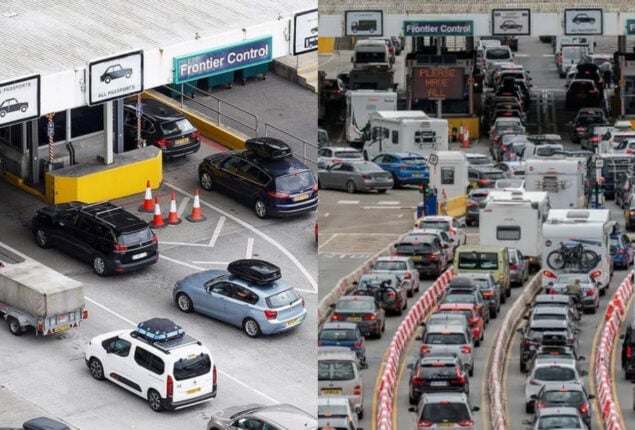EU takes first step on thorny asylum reform
The European Union's long-stalled efforts to reform its asylum policy. The aim,...

EU biometric border system experiences additional delays
A new EU border controls IT system that raised concerns about Dover line-ups during the summer vacation has been delayed once more.
The Entry/Exit System was scheduled to be unveiled in late May after being postponed from the previous year.
The technology will be implemented by the end of 2023, according to a new schedule.
People entering the bloc from non-EU nations, including the UK, will be required to submit their fingerprints and a photo along with their passport information under the system.
Travelers’ fingerprints and personal information will be registered, and that registration will be good for three years.
Every time someone crosses the border during that time, it needs to be validated. Passport stamping will be replaced by this.
The Port of Dover has already issued a warning that the length of time required for first port registration may result in lines.
The former Eurostar CEO, who retired in the fall, had also expressed worry.
Pushed back
The May 2023 deadline was “considered no longer realistic,” according to minutes from a board meeting of an EU body last week, which placed the blame on contractor delays.
The Tallinn-based EU-LISA agency, which manages the bloc’s major IT initiatives, is currently developing a revised schedule.
The Entry/Exit System should be fully operational at border crossing locations by the end of the year, according to a meeting report from last Thursday.
A request for comment has been made to the European Commission.
Delay concerns
Passport authorities at the UK port inspect passengers entering France from Dover.
One car transporting four people might take ten minutes to register, according to Doug Bannister, chief executive of the Port of Dover, who issued the warning in September.
He noted at the time that the technology to be used was unknown, but if it was a tablet computer, it may cause delays because it would need to be passed around in a car.
He cautioned that the technology appeared to be intended more for an airport environment than for individuals traveling in cars, and the port had safety concerns about forcing passengers out of their cars in the crowded terminal.
However, a UK government official on Tuesday assured travelers that there would be “no needless delays at the border.”
According to the spokeswoman, the government is “closely working with port authorities, operators, and the French government to ensure passengers are prepared.”
Catch all the International News, World News, Breaking News Event and Latest News Updates on The BOL News
Download The BOL News App to get the Daily News Update & Follow us on Google News.